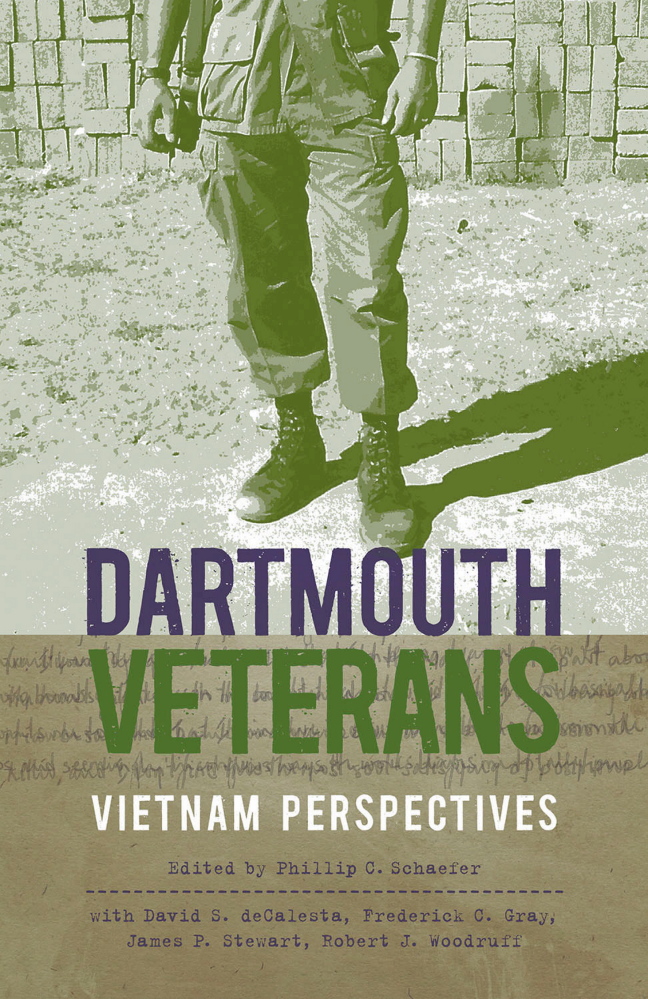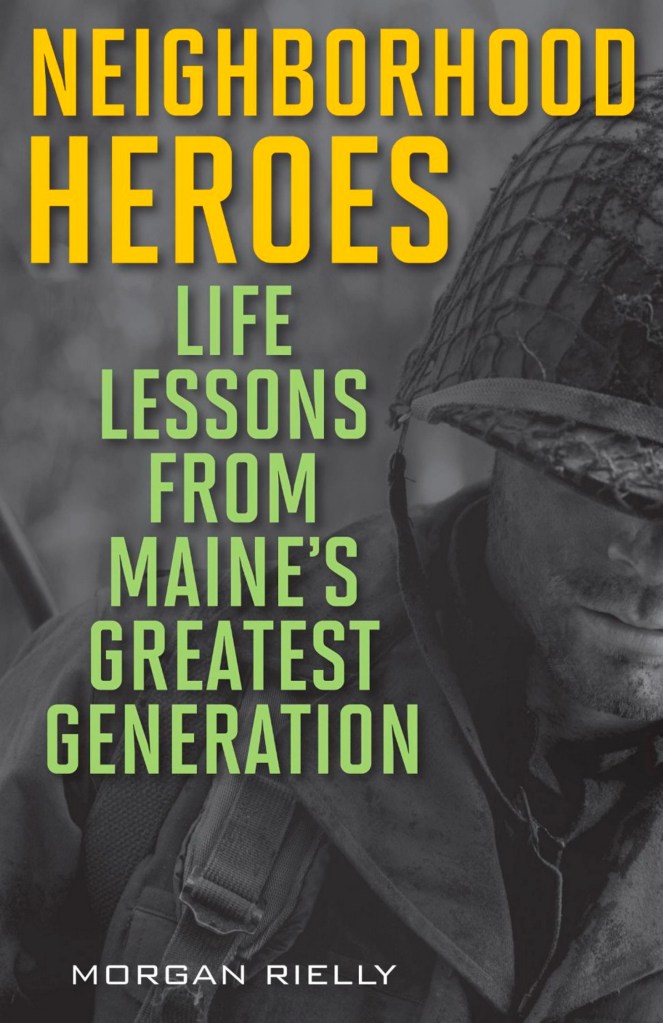Two insightful new publications focused on wartime experiences make for fascinating reading because they are told by World War II and Vietnam War era veterans. Both groups have had plenty of time to reflect on their military service and the importance of the two wars in shaping the United States and the world, and they speak to winning the hearts and minds not so much of the people being liberated or defended but of those doing the fighting and logistics themselves.
“Neighborhood Heroes: Life Lessons From Maine’s Greatest Generation” is among the most impressive works of this genre that I have had the good fortune to read. Some readers may find the title a bit overblown, a tad Brokaw-ian or something out of “American Hero Stories” textbooks.
Not so. Author Morgan Rielly is an informed student of the Second World War who lets local service people relate their experiences casually and knows the importance of personal story. He quotes an African proverb: “When an old man dies, a library burns to the ground.”
As a senior at Westbrook High School, Rielly questioned 26 area veterans with the skill of a seasoned reporter. He rarely misses a beat. Though all had different adventures, most all held similar attitudes. As Lubec’s Bernard Cheney put it, “I wanted to get overseas and enjoy the war, like everybody else my age.” There were draftees, but most were volunteers who believed they were fighting a just and necessary war.
Cheney and his contemporaries certainly saw the world, and many who enlisted with a patriotic hatred for the Axis peoples reported a real appreciation of the same people in the occupation years. Robert Guitard of New Brunswick and Westbrook noted, “In the ’40s just the word ‘Jap’ after Pearl Harbor – I never thought it would turn around the way it has. That’s a good lesson.”
A surprising number of these servicemen saw action in the hardest battles but returned to a grateful country, the G.I. Bill and jobs. Lewiston’s Jean Marc Desjardens not only had his old job at Day’s Jewelry, but the owner, who wrote to him throughout the war, offered him his own store in Rockland. Hearts and minds were largely in accord throughout the land.
“Dartmouth Veterans: Vietnam Perspectives” edited by Philip Schaefer with David S. deCalesta, Frederick C. Gray, James P. Stewart and Robert J. Woodruff, is also about the winning of hearts and minds though, from the start, the North Vietnamese attack in the Gulf of Tonkin (1964) never resonated like the destruction of the American fleet at Pearl Harbor. As “Dartmouth Veterans” notes, “We know that it is highly unlikely that the second (Tonkin) attack ever happened.”
The volume focuses on the college’s Class of 1964, which sent 157 members into the services. Fifty-five provide recollections and 35 were actually in country.
This collective memoir goes back a bit, to 1961, to show the beginning of the conflict and of Dartmouth’s participation. Its intent is to “show the human face,” which it does exceedingly well.
But it shows a very different United States and a cause that did not win the hearts and minds of all who participated. As Capt. Francis “Bud” McGrath wrote, “During my tour in Vietnam I saw no indication whatsoever of any kind of progress being made militarily or politically. For my service there I received a Bronze Star and an Army Commendation Medal. Why, I am not sure. I did my job, but that’s all. I can’t say I left Vietnam or the U.S. Army a better place.”
Alan E. Ferris, a Vietnam veteran who served in 1969, reflects on the wars that came later: “What has gone wrong in the early part of the 21st century has been a miscalculated war, a monumental economic decline and a retreat into a battle of fiercely uncompromising positions on social issues and entitlements.… Partisanship has been the order of the day, often cloaked in adherence to principles.”
Each statement is well worth reading, for each says much about American attitudinal history. We have all traveled a long road in more than 70 years, and these two books help explain a lot.
William David Barry is a local historian who has authored/co-authored seven books, including “Maine: The Wilder Side of New England.” He lives in Portland.
Copy the Story LinkSend questions/comments to the editors.




Success. Please wait for the page to reload. If the page does not reload within 5 seconds, please refresh the page.
Enter your email and password to access comments.
Hi, to comment on stories you must . This profile is in addition to your subscription and website login.
Already have a commenting profile? .
Invalid username/password.
Please check your email to confirm and complete your registration.
Only subscribers are eligible to post comments. Please subscribe or login first for digital access. Here’s why.
Use the form below to reset your password. When you've submitted your account email, we will send an email with a reset code.